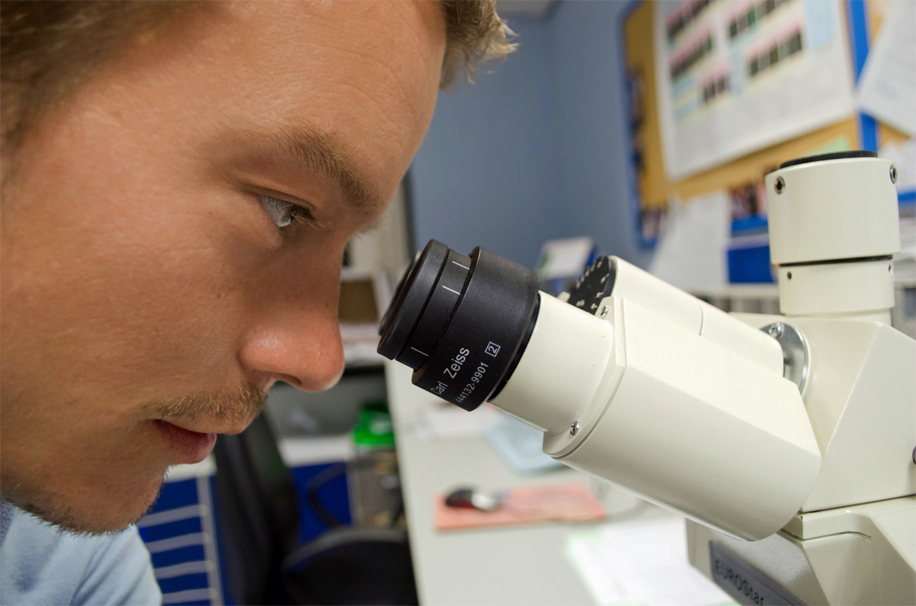The Israeli government has for years been actively trying to combat an exodus of academics who search for top-notch research facilities and higher-paying jobs abroad. Since 2010, it has spent millions of dollars on campaigns and incentives meant to entice Israeli PhDs back to the Jewish state. In 2013, it launched the Israel National Brain Gain program, in collaboration with a number of ministries, to facilitate a move “back home” for professionals and their families.
But it appears the brain drain has not ebbed. A July 2017 report released by the Central Bureau of Statistics found that 11 percent of all Israelis with doctorates from Israeli universities and institutions of higher education have been living abroad for at least three years, and close to 6 percent of all Israelis with academic degrees between 1980 and 2010 have resided outside Israel for three years or more.
The private sector has also launched its own efforts. Determined to entice Israeli academics back to their home country as well as attract postdoctoral researchers from North America to Israeli universities, American newspaper publisher and philanthropist Mortimer Zuckerman made a major investment in STEM research in January 2016, with more than $100 million in scholarships and educational activities going to chosen students and faculty who choose to do research in four major Israeli universities — Tel Aviv University, Technion – Israel Institute of Technology, Weizmann Institute of Science, and Hebrew University of Jerusalem — over the course of the next 20 years.

Zuckerman Institute trustees and Israeli university presidents are flanked by Zuckerman Scholars at the first Zuckerman U.S.-Israel Symposium. (Photo: Courtesy)
The program aims to benefit these “Zuckerman scholars,” students and faculty conducting their research in STEM (science, technology, engineering, math) subjects by providing much-needed resources, large-scale funding, and exposure to Israel’s cutting-edge research and startup culture to postdoctoral researchers and faculty who are nominated for scholarships. With current scholars finishing out the year, the program has put a call out for a new batch of postdoctoral students and faculty deserving of merit. A call for nominees for the 2018-2019 Zuckerman Israel Postdoctoral Fellowship have been put out by the foundation and applications are due by December 29, 2017.
What keeps postdoctoral students from coming to Israel?
Zuckerman launched the STEM Leadership program to support future generations of STEM leaders, but also to foster greater scientific collaboration between American and Israeli academics. According to Dr. Danny Ben-Zvi, a Zuckerman scholar conducting research at Hebrew University of Jerusalem, Israel needs a program like the STEM Leadership initiative to enable researchers to continue making notable scientific contributions from Israel. He tells NoCamels, “The science in Israel is great,” he continues. “We publish very well. We do great stuff, mostly through talented PhD students. There isn’t a problem with science per se. The problem is convincing someone very good, from MIT, for example, to do a post doc in Israel versus, say, Oxford in Cambridge.”
Dr. Ben-Zvi, who earned his Bachelors of Science from Hebrew University’s Talpiot program and began PhD studies at Weizmann Institute of Science, came back to Hebrew University of Jerusalem after completing postdoctoral research at Harvard University. Every year, one principal investigator, or research group leader from each of the four universities receives a generous donation from the Zuckerman STEM program to start up his/her lab and buy equipment necessary for conducting the research. This is what happened to Ben-Zvi, who was able to start a lab needed to do his research on effects of the body after weight loss surgery.

Scholars for the Zuckerman initiative get funding for top-notch equipment, including computers and microscopes, to complete their research (Photo: Courtesy)
“If you want to have it as good as in Harvard, you should be able to buy the equipment that will help you do the research you need to do,”he says. “Through the foundation’s generous donation I was able to get the equipment I needed.”
But if Israeli universities want to be in the running for top-notch science programs alongside US Ivy League universities like Brown and Harvard and high-level math and science schools like MIT, it may take a lot more than just “great science” or top-of-the-line equipment.
Sign up for our free weekly newsletter
SubscribeDifficulties such as the low-paying salaries typically offered to a postdoctoral fellow and the high cost of living in Israel have been known to dissuade students from earning their degrees here. The Zuckerman STEM Leadership program wants to navigate those roadblocks.
There’s also a fear among some Westerners of visiting or living in a country that features regularly in international headlines for terror attacks and other security issues. Zuckerman scholars who come to study in Israel soon come to learn that Israel isn’t just what you see on the news.
Grace Smarsh, a Texas A&M University student who came to Israel after being inspired by Dr. Yossi Yovel’s lab at the International Bat Research Conference in South Africa in 2016, says that she had a positive learning experience as a Zuckerman scholar at Tel Aviv University under the guidance of Dr. Yovel. “There are concerns about the safety here, but I will assure my fellow Americans that Israel is not a place to be feared,” she tells NoCamels.
The US-Israel Connection
Besides producing outstanding STEM research, the goal of the Zuckerman STEM Leadership program is providing American graduate students and postdoctoral researchers with exposure to Israel’s renowned state-of-the-art research and booming startup culture with the hope that it will create a generation of academic and scientific leaders in the United States infused with a spirit of entrepreneurship and innovation from the “Startup Nation.” According to a report from Tel Aviv University on the Zuckerman program, the foundation hopes this partnership will come with long-lasting relationships, mutual collaborations, and a strengthened US-Israel partnership that will continue after Zuckerman scholars return to the US. In the same way, the hope is that Israeli academic leaders will return to their research institutions in Israel and advance the collaborative effort in science between the two nations.
SEE ALSO: Is Israel At Risk Of Losing Its ‘Startup Nation’ Title?
“Israel is growing in science and technology, offering a lot of potential for collaborative growth, personal improvement, and opportunities to follow your passions,” Smarsh says.
The STEM Leadership program has been recognized by both Israeli President Reuven Rivlin and Israeli Prime Minister Benjamin Netanyahu. In a special video message at an American press conference about the event during its launch in 2016, Netanyahu said, “This project will help bring back home some of Israel’s most brilliant sons and daughters, allow them to advance their own careers here and in so doing contribute to Israel’s growing scientific excellence. It will also enable some of America’s brightest young scientists to conduct their research in Israel.”
Related posts

Editors’ & Readers’ Choice: 10 Favorite NoCamels Articles

Forward Facing: What Does The Future Hold For Israeli High-Tech?

Impact Innovation: Israeli Startups That Could Shape Our Future




Facebook comments